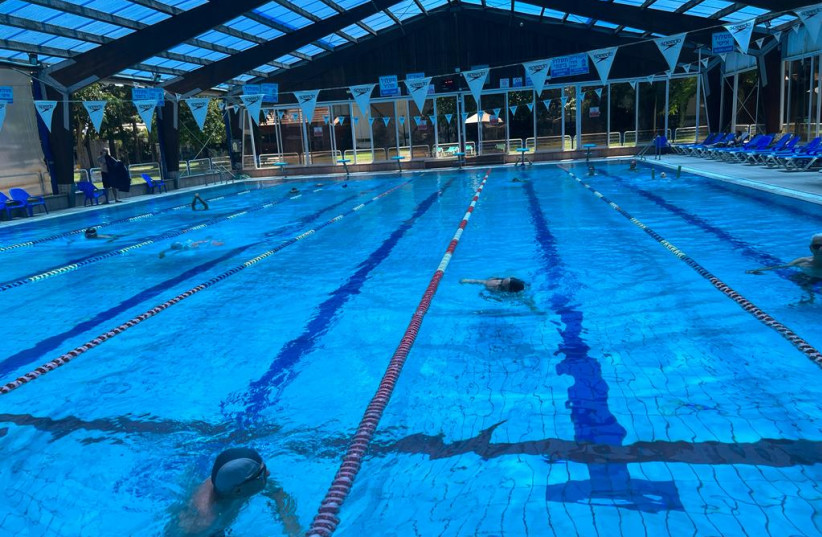Israel needs a national program for drowning prevention – editorial
Twenty-six people have drowned off Israel’s beaches since the swimming season began in late March, according to Magen David Adom.
The latest deaths took place on Saturday, when two people lost their lives in the rough Mediterranean Sea – a 29-year-old man who was swimming at a beach without a lifeguard station near Ga’ash and an 80-year-old man at a beach in Ashkelon. Four others were hospitalized in serious condition – a 17-year-old who was also swimming near Ga’ash, a 16-year-old near Zikim, a 40-year-old at Sdot Yam, and a 55-year-old north of Netanya.
The majority of drownings off beaches occur either on officially recognized beaches when lifeguards are not on duty, or on beaches where swimming is prohibited. Magen David Adom, the lifeguards’ association, and the Israel Life Saving Federation (ILSF) urge people to swim only on beaches demarcated for swimming that have lifeguard services.
The lifeguards also implore the public to abide by safety warnings and flags: Don’t be deceived by what looks like a calm sea; the Mediterranean can have a deceptively strong undertow. White flags mean bathing is permitted, black flags indicate that swimming is forbidden, and red flags signal it could be dangerous.
ILSF is a nonprofit volunteer organization based on the world’s leading water-safety model – Surf Life Saving Australia (SLSA) – whose goal is to prevent drownings across Israel through education and practical courses for all age groups from as young as seven years old. It was founded in 2019 by Paul Hakim, a top surf lifesaver and beach patrol manager from Sydney, his brother Danny Hakim, and Lisa Segelov, all of whom made aliyah from Australia.
 A swimming venue at Kfar Maccabiah. (credit: FELICE FRIEDSON/THE MEDIA LINE)
A swimming venue at Kfar Maccabiah. (credit: FELICE FRIEDSON/THE MEDIA LINE)“The surf-rescue model seeks to teach volunteers and passersby to respond and offer first aid in the case of ocean-drowning incidents,” ILSF says. “Courses include water awareness, ocean lifesaving, and first aid, combined with fitness and competitions.”
Teaching water safety is standard across the world
Paul Hakim adds, “Teaching drowning prevention and water safety is standard overseas. It’s taught in schools and also in informal education. It’s proven to reduce youth drownings. Israel has a challenge on that front because we’re such a multicultural society. Basically, everyone goes to the beach, but because of our community makeup and economic situation, not everyone is equipped or knowledgeable to conduct themselves safely at the beach.”
HaGal Sheli (My Wave) is an award-winning organization for teenagers at risk established in 2013 and based at the Tel Aviv Educational Surfing Center on the beach in Jaffa. Its founder and CEO, Yaron Waksman, hails from Melbourne and the organization receives support from the Australian embassy and the Australian Jewish community.
“At the foundation of the nonprofit’s activity is the understanding and proof that experiencing and dealing with the waves and currents at sea, with the weather, falling off the surfboard and uncertainty, are empowering and formative experiences that affect all areas of life,” Waksman wrote in The Jerusalem Post.
“The experience and coping of the trainees during the HaGal Sheli activity instill in them the feeling of not to give up and, with hard work and determination, to succeed in catching a wave to a better life.”
It is this approach that Waksman and the organization’s co-founder, Omer Tolichansky, say should be adopted in Israel. Hakim also believes that many drownings could be prevented if Israel emulated Australia’s culture of water safety. “In Australia, that culture starts from the age of four,” he says. “Children learn basic water safety in preschool, and go on to learn how to offer drowning first aid. It’s part of being a water-safe community.”
A national program for drowning prevention should be drafted for preschools and schools throughout the country, under the auspices of the Education Ministry.
The ministry could enlist the expert help of trained lifeguards as well as organizations such as ILSF and HaGal Sheli to educate future generations on how to prevent drownings in Israel.
In his commentary on the Mishna, Maimonides says the command to teach a child to swim is a duty incumbent on parents. Surely this should be applied to schools, as well.





Comments are closed.